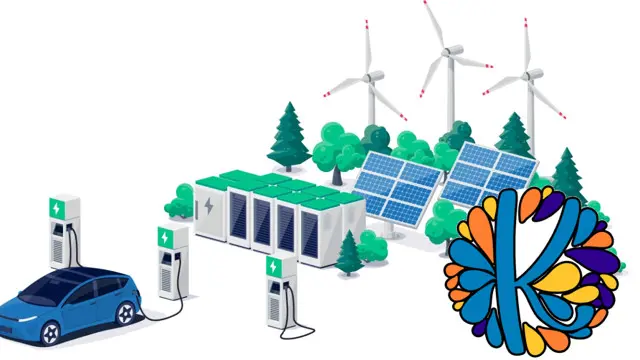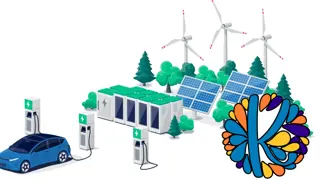
Renewable Energy and Electric Vehicles Bundle for Beginners
Learn about renewable energy resources like solar, wind, wave, hydro, geothermal, and electric vehicles for beginners.
Khadija Academy
Summary
- Reed Courses Certificate of Completion - Free
- Tutor is available to students
Add to basket or enquire
Overview
Welcome to our course "Renewable Energy and Electric Vehicles for Beginners"
The only course out there with everything you need to know about solar, geothermal, wind, hydro, and wave energies in addition to electric vehicles for complete beginners.
Curriculum
-
Basics of Wind Turbines 3:08:03
-
Different Types of Towers 19:53
-
Basics of Solar Energy - Panels 5:27:39
-
Types and Components of PV Systems 24:07
-
Charge Controllers in PV System 46:21
-
Inverters in PV System 55:04
-
Basics of Wave Energy 2:07:15
-
Wave Energy Conversion System (WECSs) 2:58:25
-
Feasibility Study of a Wave Energy Resource 1:14:37
-
Hydroelectric Power Plants 36:14
-
Geothermal Power Plants 12:11
-
Basics of Electric Vehicles 47:46
Course media
Description
What are you going to learn in this course?
The basics of wind energy such as types of wind turbines, Betz limit, power extraction from wind, factors affecting wind speed, wind turbine generator characteristics, the effect of the rotor diameter and generator size on power, and the wind turbine spacing.
The basics of solar energy such as the components of the PV system, types of panels and PV systems, selection of tilt angle, installation of solar cables, how to specify the distance between PV rows, global solar atlas, charge controllers, and their types, and solar inverters.
The basics of wave energy including the wave space, time, and height properties, sea wave equation, wave packet, wave particles motion, dispersion relation of different sea waves, shoaling effect in sea waves, and wave buoy measurements and computation of sea parameters.
Moreover, in the wave energy course, we will learn about the types of wave energy conversion systems like Pelamis wave energy converter, Aquabuoy and the Aegir dynamo wave energy converters, wave dragon, oscillating column wave energy converters, AWS or Archimedes wave swing, and oyster wave energy converter. Also, we will have an overview, of types, and different projects and prototypes involving these converters.
The steps of a feasibility study in a wave energy resource will be explained and how can we apply this to a location in Spain.
The basics and types of hydroelectric power plants, hydro head and its effect on electricity generation.
The basics of geothermal power plants including the generation of electricity from geothermal power and the types of geothermal power plants.
The definition of an electric vehicle and types of electric vehicles like battery electric vehicles (BEVs), plug-in hybrid electric vehicles (PHEVs), and hybrid electric vehicles (HEVs).
The history of electric vehicles and major components of electric vehicles like batteries, motors, and power electronic converters.
The battery technology adopted like lithium-ion batteries in addition to advancements in battery technology, and types of electric motors in electric vehicles including AC and DC adopted.
The charging infrastructure including the definition of a charging station or charging equipment, and levels of charging including the home level and public level. Moreover, the definition of range, range anxiety, and the environmental impact of EVs.
Who is this course for?
- Anyone who wants to get knowledge about the renewable energy sector
- Anyone who wants to get knowledge about the electric vehicles
- Electrical engineering students
- Electrical engineers
- Mechanical engineers
- Renewable engineers
Requirements
No prior knowledge
Passion to learn
Career path
- Electrical engineer
- Renewable energy engineer
Questions and answers
Currently there are no Q&As for this course. Be the first to ask a question.
Certificates
Reed Courses Certificate of Completion
Digital certificate - Included
Will be downloadable when all lectures have been completed.
Reviews
Currently there are no reviews for this course. Be the first to leave a review.
Legal information
This course is advertised on reed.co.uk by the Course Provider, whose terms and conditions apply. Purchases are made directly from the Course Provider, and as such, content and materials are supplied by the Course Provider directly. Reed is acting as agent and not reseller in relation to this course. Reed's only responsibility is to facilitate your payment for the course. It is your responsibility to review and agree to the Course Provider's terms and conditions and satisfy yourself as to the suitability of the course you intend to purchase. Reed will not have any responsibility for the content of the course and/or associated materials.


